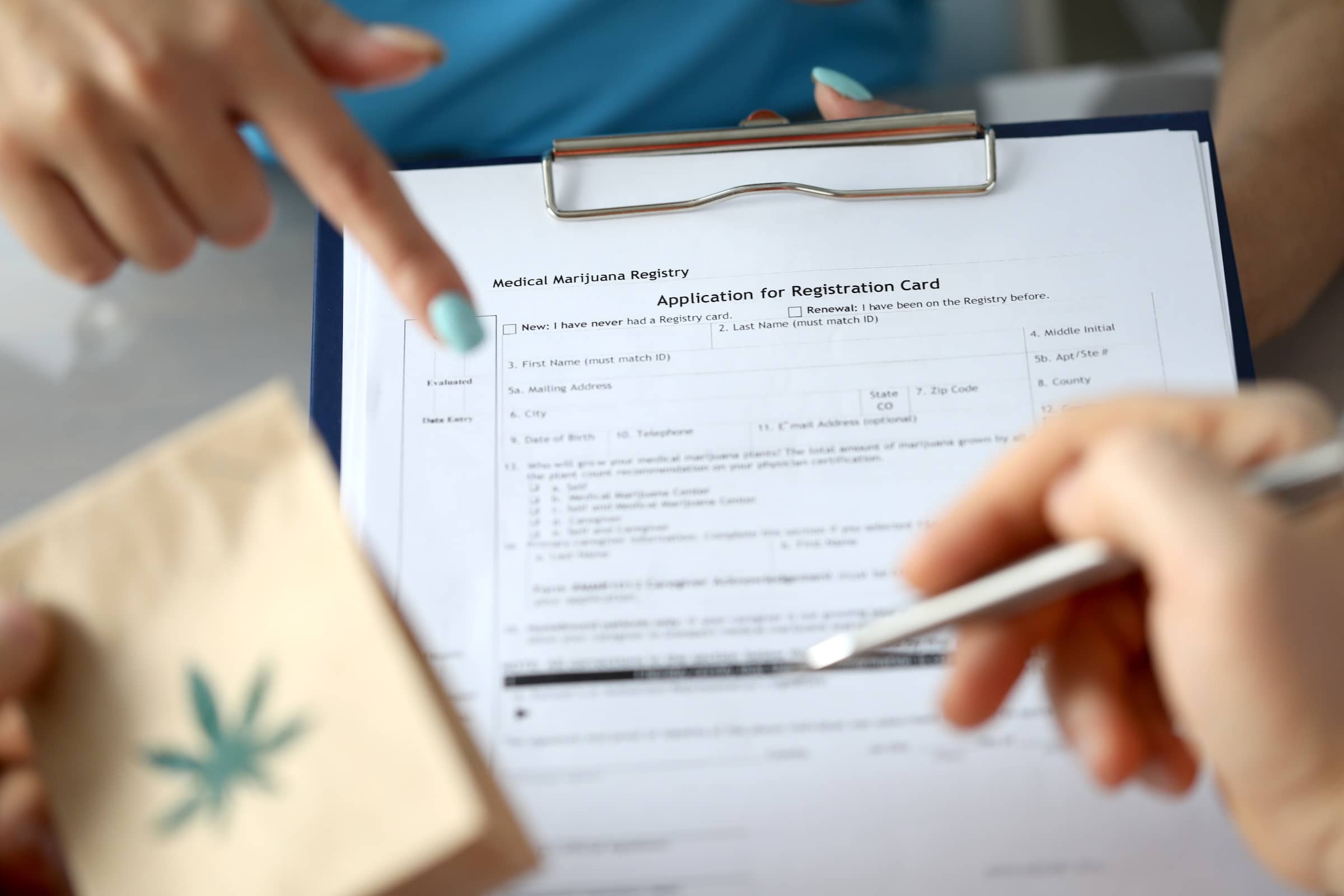Medical marijuana has been grabbing headlines for its remarkable potential to alleviate a range of health conditions, from chronic pain to severe seizure disorders.
Securing a medical marijuana card can be life-changing for many patients, but understanding the ins and outs of who qualifies—and how—often feels overwhelming.
We’ve laid out the process in simple, no-nonsense steps to help you cut through the red tape—so you know exactly what’s needed to qualify, what paperwork to get in order, and how to find the right medical marijuana doctor.
Think of this guide as your go-to manual for making the whole thing smoother, clearer, and way less stressful.
Why Eligibility Varies So Much
When it comes to medical marijuana, there’s no one-size-fits-all rule—every U.S. state has its own take on who qualifies and how.
Some, like Oklahoma, make it relatively easy to get approved, while others—Texas, we’re looking at you—put up more hoops to jump through.
In Texas, for instance, even something as common as insomnia might require a mountain of paperwork before a doctor can sign off on cannabis as a treatment.
And once you’re approved, finding a reliable source matters just as much—services like Same Day Cannabis offer a convenient option for accessing what you need without extra hassle.
With this patchwork of regulations, your best bet is to check your state’s guidelines to see if your condition makes the cut.
Common Conditions That May Get You Approved
There’s no denying that cannabis has become a game-changer for managing all sorts of health conditions, but the list of what actually qualifies depends on where you live.
Some states are more flexible, while others stick to a stricter set of guidelines. Here are some of the most commonly approved conditions:
Chronic Pain
Conditions like arthritis or persistent back pain, especially when traditional treatments have fallen short, are typically recognised.
California and Colorado, in particular, list ongoing pain among top reasons for marijuana prescriptions.
Epilepsy and Seizure Disorders
Multiple peer-reviewed studies suggest cannabis-based medications can significantly lower seizure frequency in severe epilepsy cases, such as Dravet syndrome.
PTSD
Recognised in states like New Mexico and Michigan, medical marijuana’s potential to mitigate anxiety symptoms has made it a go-to option for PTSD sufferers.
Other Examples
Cancer-related symptoms, glaucoma, Crohn’s disease, multiple sclerosis (MS), HIV/AIDS wasting syndrome, Parkinson’s disease (in states like Arizona), and terminal illnesses needing palliative care also appear on many approved lists.
The Crucial Role of Your Doctor
No matter how straightforward your state’s process might appear, a certified medical marijuana doctors ultimately decides if cannabis could benefit your specific situation. Here’s what to expect:
Symptom Evaluation
Your doctor will examine how issues like chronic pain or anxiety affect your everyday life.
Review of Medical History
Past treatments and diagnoses come under scrutiny to confirm that cannabis is the right next step.
Balanced Insight on Benefits and Risks
Medical marijuana doctors are there to explain how cannabis might help—while also discussing any potential drawbacks.
A doctor’s recommendation often serves as the green light you need to file for a card, so their input is absolutely pivotal.
What You’ll Likely Need to Apply
Different states have different paperwork requirements, but you can typically expect to provide:
Medical Records
Detailed documentation of your condition, such as previous treatment notes or test results.
Doctor’s Certification Form
A signed paper from a qualified physician stating that cannabis could alleviate your symptoms.
Proof of Identification
A valid driver’s license or state-issued ID confirming your residency and identity.
For instance, Florida’s Office of Medical Marijuana Use requires both a completed physician form and proof of residency before processing any applications.
Sorting Fact From Fiction: Common Misconceptions
Despite growing acceptance, medical marijuana continues to be surrounded by confusing myths. Let’s debunk a few:
Myth #1: Only the Terminally Ill Qualify
Reality: While terminal conditions often make the list, migraines, anxiety, or chronic insomnia can also qualify in certain states.
Myth #2: You Must Exhaust Every Other Treatment First
Reality: Some states do require evidence of previous treatments, but that isn’t a universal rule.
Myth #3: Minors Are Never Eligible
Reality: In many states, minors with severe conditions can access medical marijuana legally—with parental consent and a certified doctor’s endorsement.
Making the Process Manageable
Applying for a medical marijuana card might feel intimidating, but it doesn’t have to be. By checking your state regulations, gathering relevant medical records, and consulting qualified experts, you’ll set yourself up for success.
Whether you’re dealing with chronic pain or conditions like epilepsy, Medical marijuana could well be the key to long-awaited relief. Remember, it all begins with understanding what’s required and seeking credible, up-to-date guidance.
If you’re ready to explore a legal pathway to ease your symptoms, start preparing your application.
With a bit of proactive research and the right support system in place, you’ll be on your way to tapping into the potential benefits of this increasingly recognised treatment option.





